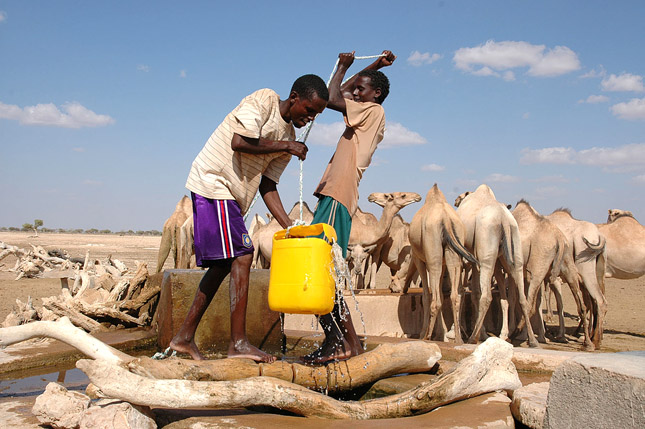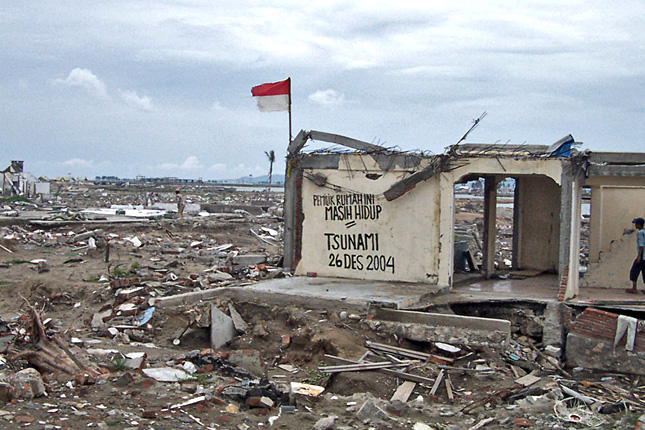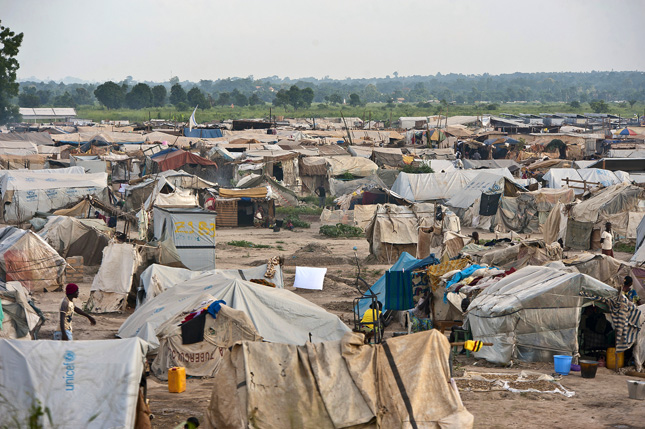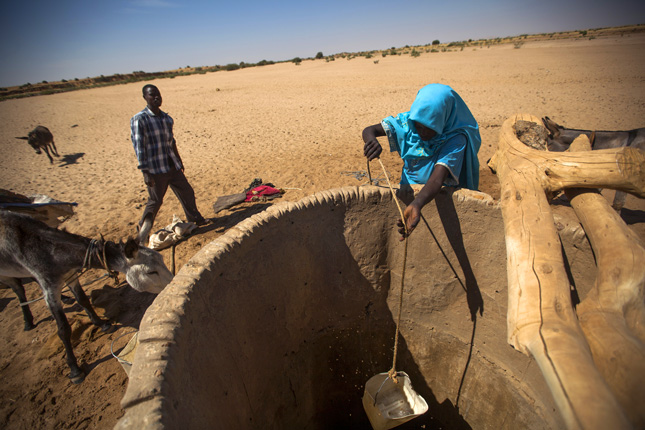-
Wilson Center and USAID Launch “Resilience for Peace Project”
›
As “resilience” builds as a theme for the development community, a few key concepts are rising to the top of the conversation. [Video Below]
-
New G7 Report Highlights Climate Change and Fragility as a Foreign Policy Priority
›
At the close of a meeting of G7 foreign ministers in Lübeck today, ministers announced a stronger collective commitment to tackling climate-related risks in states experiencing situations of fragility.
-
Catalyzing Cooperation: Disaster Diplomacy and its Potential to Short-Circuit the Climate-Conflict Link
›
There is a growing chorus of voices claiming climate change will foster more conflict and violence. Books have been released on the impending age of climate wars, while media outlets dutifully report on research that purports to show how global warming will increase violence of every form, from the number of times pitchers bean batters in baseball to the rate of sexual assault.
-
What’s in a Name? States of Fragility and Adjusting Aid to Conflict Zones
›April 13, 2015 // By Lauren Herzer Risi
Depending on how closely you pay attention to the OECD, you may have picked up on a subtle but meaningful change in this year’s States of Fragility report. Whereas previous reports were titled Fragile States, the Organization for Economic Cooperation and Development has shifted its framing to focus less on states and more on conditions, less on the binary status of a “fragile state” and more on fragility as a universal condition that can impede development in all countries.
-
Interview With Michael Brown, UN Senior Mediation Expert in Natural Resources and Land Conflicts
›April 8, 2015 // By Linnea Bennett
Natural resources rarely feature during peacebuilding efforts, but there is growing evidence that’s a mistake. Unresolved natural resource management issues can make peace more fragile, while addressing them can act as a bridge toward cooperation.
-
Not Enough to Go Around? Tensions Over Land Threaten to Boil Over in Burundi
› -
Jack A. Goldstone, CNN
Yemen’s Collapse a Result of Systematic Failures, U.S. Neglect
›April 2, 2015 // By Wilson Center Staff
It shouldn’t come as a surprise that Yemen has collapsed – again. A country that has split and been pulled together before, has the youngest and fastest growing population in the region, is running low on oil and water, and possesses a “personalist” government rather than stable institutions, was on the top of every expert’s list as the fragile state most likely to fail next.
-
Syria Conflict’s Connection to Climate Change, and Avoiding Maladaptation to “Hydro-Climate” Risks
› In a headline–making article in the journal PNAS, Colin P. Kelley et al. write there is evidence that the ongoing conflict in Syria, which has killed at least 200,000, was triggered by climate change. Severe drought from 2007 to 2010 caused a massive rural-to-urban demographic shift which exacerbated pre-existing sociopolitical tensions in Syrian cities already inundated with Iraqi refugees.
In a headline–making article in the journal PNAS, Colin P. Kelley et al. write there is evidence that the ongoing conflict in Syria, which has killed at least 200,000, was triggered by climate change. Severe drought from 2007 to 2010 caused a massive rural-to-urban demographic shift which exacerbated pre-existing sociopolitical tensions in Syrian cities already inundated with Iraqi refugees.
Showing posts from category conflict.











